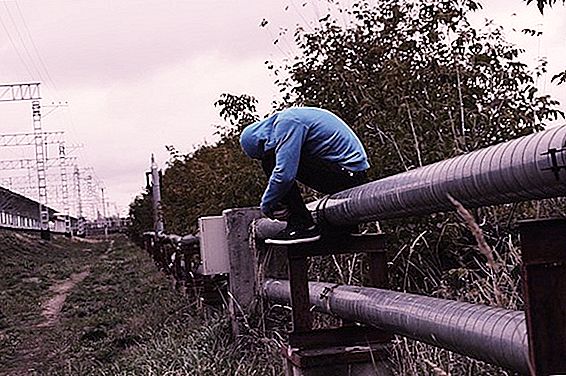In the modern world, various forms of depression affect an increasing number of people. Experts note that in recent times, a latent form of a depressive state, which has been unknowingly masked by something, has gained special popularity. Such depression is called masked or hidden. What are the signs of this disorder in yourself or in a loved one?

Signs and symptoms of masked depression
The first thing to understand and remember in the context of latent depression is that, as a rule, a sick person is completely unaware of his current state. He does not even allow the thought that something might be wrong with his psyche. For a person in the picture of his world there is no such thing as depression. He will look for other reasons and reasons, due to which these or other symptoms are manifested, or he will not pay attention to any changes in his condition at all, until he becomes completely difficult.
Recognizing the latent form of depression can be difficult even for doctors; in the diagnosis, data received from family, friends, and the immediate environment can play a large role. Often from the side to suspect a person of masked depression is not difficult if you know what points to pay attention to.
Somatic, physiological symptoms of masked depression
In many cases, a person's appetite changes in this condition. The patient can consume many times more food than before, while changing taste preferences. With depression, a craving for sweet, spicy, for any bright and rich tastes, exotic dishes is characteristic. Also dominates the desire to drink coffee or hot chocolate, cocoa more often, regularly drink any alcoholic beverages. A person who previously could not endure sushi, but now constantly ordering them for himself, may himself wonder where he has such a craving for seafood. However, the patient can not assume the idea that unconscious depression is to blame for everything. Another option is an almost complete or complete rejection of food. A person has to feed literally by force.
Either the head breaks, the heel aches, then it presses on the neck, then it is hard and painful to breathe. For a patient with masked depression, algias are typical - these are certain painful sensations that can occur simultaneously in different parts of the body, without having an organic cause. It becomes a habit for a depressed patient to constantly feel pain, which in stressful or crisis situations, under the influence of nerves and experiences, can become very aggravated. The pain, as a rule, is different, from stitching to dull and aching, while soreness is usually present at once in several parts of the body or organs. Psychogenic pain can “walk” through the body in waves, disturb the stomach, then switch to muscles and joints, then affect the throat, etc.
Against the background of masked depression, the hormonal background changes, internal organs and systems begin to work differently, libido decreases. A person who is eating a lot of food can lose weight. Often, against the background of latent depression, the patient has symptoms of gastrointestinal tract or heart disease. Apparent violations will occur depending on which organ (or system) is the weakest. The second reason: physiological symptoms will be exactly the same as what disease (or diseases) a person is very afraid of. If a patient with latent depression is very afraid that he will have problems with the liver, latent depression will begin to come out through this organ - typical symptoms of liver inflammation or cirrhosis will appear.
Despite the fact that latent (masked) depression most often does not seem typical, the standard symptoms of the disorder come to the fore, it is characterized by a decrease in physical activity, fatigue, and drowsiness. However, periods of decadence can quickly be replaced by activity, insomnia, vigor. Against the background of such changes, the patient’s mood also changes very abruptly.
Psycho-emotional symptoms
- Abrupt mood swings, sometimes several times a day. Often, the patient’s mood is positively influenced by sweet foods or doing favorite things, pleasant music.
- Recurrent affective outbreaks. At certain points, a patient with latent depression may cease to control himself. This manifests itself in increased aggressiveness, hostility and irritability, or a person may seemingly burst into tears in a public place without reason. After such episodes, a person usually feels very depressed, trying to find an excuse.
- Increased suspiciousness. Dominant abnormal hypochondria.
- The appearance of symptoms of anxiety disorders. Among the symptoms of latent depression, panic attacks may be present. Aggravation of phobias and fears. In general, emotions become as if brighter.
- For a patient with masked depression, the presence of various obsessions is typical.

